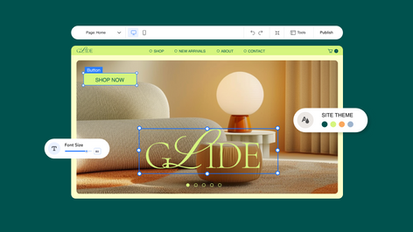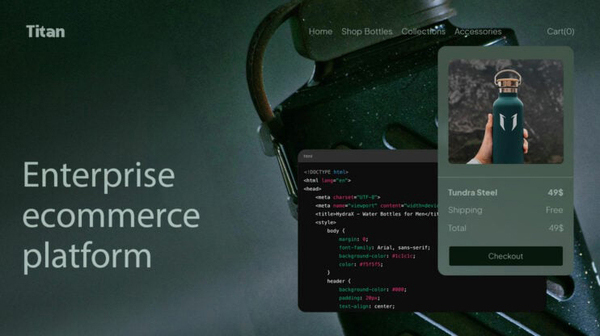Entry Level Web Developer Positions Explained
Entry Level Web Developer Positions Challenges
Entry Level Web Developer Positions
In today’s digital age, the internet has become an integral part of our daily lives. With millions of websites available at our fingertips, it can be overwhelming to find new and interesting websites to explore. This is where a random website generator comes in handy.

Getting Started with Entry Level Web Developer Positions
Entry Level Web Developer Positions
When designing a website with SEO in mind, there are several key factors to consider. These factors include website structure, content, user experience, and technical aspects such as site speed and mobile-friendliness. By focusing on these elements, you can create a website that is not only visually appealing but also ranks well in search engine results.
Website structure is an important aspect of SEO web design. A well-organized site structure makes it easier for search engines to crawl and index your site, leading to better search engine rankings. A clear hierarchy of pages, with logical navigation and internal linking, helps search engines understand the content and relevance of each page. By organizing your website in a structured manner, you can improve the user experience and make it easier for visitors to navigate your site.
Content is another key factor in SEO web design. High-quality, relevant content is essential for attracting and engaging visitors, as well as improving search engine rankings. When creating content for your website, it’s important to use relevant keywords and phrases that users are likely to search for. By incorporating keywords strategically throughout your content, you can improve your chances of ranking well in search engine results.
User experience is also crucial in SEO web design. A website that is easy to navigate, loads quickly, and is mobile-friendly will provide a better experience for users and improve search engine rankings. In addition, user-friendly design elements such as clear calls to action, easily accessible contact information, and intuitive navigation menus can help increase user engagement and conversions.
Technical aspects of web design, such as site speed and mobile-friendliness, can also impact SEO. Search engines give preference to websites that load quickly and are optimized for mobile devices, so it’s important to ensure that your site is responsive and loads quickly on all devices. By optimizing images, minifying code, and using a content delivery network, you can improve site speed and user experience, leading to better search engine rankings.
What is a website ranking checker?
A website ranking checker is a tool that allows you to monitor the position of your website in search engine results for specific keywords or phrases. These tools provide valuable insights into how well your website is ranking compared to your competitors and help you track your progress over time.
There are a variety of website ranking checkers available, ranging from free to paid versions. Some popular tools include SEMrush, Ahrefs, Moz, and Google Search Console. Each tool offers unique features and metrics that can help you better understand how your website is performing in search engines.
Why is website ranking important?
Website ranking is crucial for businesses looking to increase their online visibility and attract more organic traffic to their website. Research shows that the majority of users click on one of the top three search results, making it essential for businesses to aim for higher rankings on SERPs.
Higher website rankings also lead to increased credibility and trustworthiness in the eyes of consumers. Websites that appear on the first page of search results are often perceived as more authoritative and relevant to users, which can result in higher click-through rates and conversions.
Additionally, website ranking plays a significant role in driving organic traffic to your website. By ranking well for relevant keywords, you can attract users who are actively searching for products or services that you offer, increasing the likelihood of converting them into customers.
How can website ranking checkers help businesses?
Website ranking checkers offer a range of benefits for businesses looking to improve their online visibility and search engine rankings. Here are some ways in which these tools can help businesses:
1. Track keyword rankings: Website ranking checkers allow you to monitor how well your website is ranking for specific keywords or phrases. By tracking your keyword rankings over time, you can identify opportunities for improvement and adjust your SEO strategy accordingly.
2. Monitor competitor rankings: Website ranking checkers also enable you to keep an eye on how your competitors are performing in search engines. By comparing your website’s rankings to those of your competitors, you can identify areas where you may be falling behind and make adjustments to stay ahead of the competition.
3. Identify SEO issues: Website ranking checkers can help you pinpoint any technical or SEO issues that may be affecting your website’s performance in search engines. By identifying and fixing these issues, you can improve your website’s rankings and overall online visibility.
4. Measure the effectiveness of your SEO efforts: Website ranking checkers provide valuable insights into how well your SEO efforts are paying off. By tracking your website’s rankings over time, you can assess the impact of your SEO strategies and make data-driven decisions to improve your results.
5. Improve content strategy: Website ranking checkers can help you identify which content is performing well and which may need improvement. By analyzing your website’s rankings for different pages and keywords, you can develop a more effective content strategy that resonates with your target audience.

Entry Level Web Developer Positions Checklist
Entry Level Web Developer Positions
Conclusion
In conclusion, website builders are a valuable tool for anyone looking to establish an online presence quickly and affordably. These platforms offer easy-to-use interfaces, customizable templates, built-in features, and quick deployment, making it easy for anyone to create a professional-looking website without any technical skills.
When choosing a website builder, consider factors such as ease of use, templates, features, pricing, and support to ensure you select the right platform for your needs. With the right website builder, you can create a stunning website that showcases your brand, products, or services and helps you reach a wider audience online.


